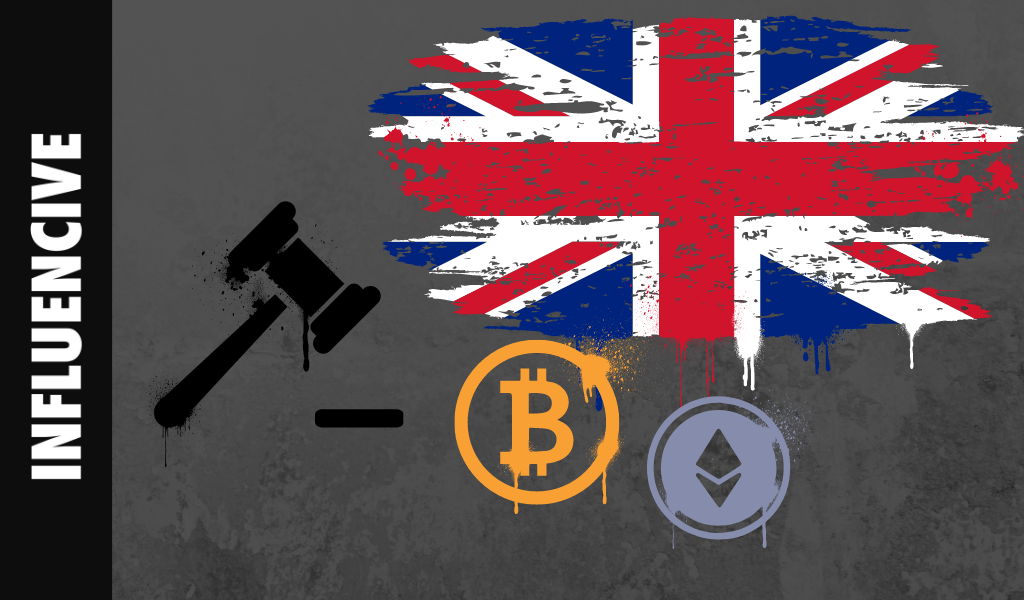While the US has been grabbing all the crypto regulation headlines lately, the UK has been having its own discussions about the future of digital assets within its borders. It’s quite a hot topic, with differing opinions among those in charge of setting the rules and regulations for how we should handle crypto.
The All Party Parliamentary Group (APPG) for crypto assets has released a report that supports the government’s proposal to regulate crypto as financial services. On the other hand, the House of Commons Treasury Select Committee thinks crypto should be treated as gambling due to its perceived lack of intrinsic value and its tendency to be volatile in price.
Truly, it’s hard to stay objective when we hear phrases like “lack of intrinsic value” while central banks have been printing money like there’s no tomorrow, or “price volatility” when banks themselves have acted like unreliable shitcoins the way they’ve been mercilessly rugging customers.
But let’s try to navigate through this with some grace.
APPG Report Findings

The APPG’s report emphasizes the importance of taxing crypto gains, ensuring consistency with other countries’ regulations, and providing robust consumer protection for UK investors. These are valid points that should be considered.
However, let’s not forget that crypto regulation is a complex and ever-evolving issue. Just look at recent developments. The EU has established its own special regime for regulating crypto assets, and the US Securities and Exchange Commission is cracking down on certain crypto assets, categorizing them as securities. So, it’s not exactly a unified front just yet.
UK FCA HAS Their Say
The Financial Conduct Authority (FCA) in the UK is stepping in to crack down on risky crypto promotions and protect first-time investors. Their plan? Tighter advertising rules for crypto assets. They want to give first-time investors a 24-hour cooling-off period, allowing them to reconsider their decisions. It’s a good move to protect newcomers, but it does raise some interesting questions.
For example, if our friend “UK Man” buys some Bitcoin and sees its value plummet within 22 hours, can he get a refund? And who would he ask? Satoshi Nakamoto? He’s a hard man to get hold of.
One proposal which seems a bit more straightforward in common sense is that risk warnings must be clear, and advertisements should not be misleading or exert undue pressure on consumers. Additionally, “refer a friend” bonuses would be wiped out under these new rules, as they are deemed to encourage inappropriate incentives for investment. Again, from a common sense standpoint, it’s hard to argue against.
Lastly, the FCA emphasizes that consumers should understand the risks involved in crypto investments and should not expect protection from compensation schemes if things go wrong. While this is sound policy, it does lead us back to the conundrum of ‘UK Man’ and his refund request.
Final Thoughts
![]()
Regulation is inevitable, I think most of us came to terms with that long ago regardless of your jurisdiction. Done right, regulation can benefit the industry and the country as a whole.
Unfortunately it was quite chilling to read that crypto could be regulated like gambling here in the UK, as that has done nothing but harm the industry and caused more pain than protection.
The UK Gambling Commission (UKGC) has repeatedly made mistake after mistake with their regulation, all behind the facade of kindness. Less than 1% of the UK population has a serious gambling addiction, and yet 100% of the population must adhere to draconian and intrusive financial checks in order to wager once a certain deposit amount has been reached.
If you’re not willing to hand over tax returns, unredacted bank statements, selfies of yourself holding ID up next to your face, to name but a few demands, your account is cancelled and in rare cases, funds seized. General rules and regulations are vague, allowing gambling operators seizing the opportunity to bend the regulations to their advantage, and when something goes wrong – such as winning bets not being paid out – often there is nowhere for the customer to turn to in the form of defense.
I recently spoke to a representative of the UKGC when I had an issue pertaining to non-payment, and she informed me there is no ombudsman for the public when it comes to gambling. The UKGC can only guide, they cannot enforce. It was astonishing to learn for someone like myself who’s been gambling for many years.
The last thing crypto in the UK needs is those same people wading in, telling us what we can and can’t invest in, how much and at which time of day, or even why we’re buying $POOCOIN. The UK government treating crypto as financial services rather than gambling is something which all UK crypto holders should hope for, for the benefit of the UK and its citizens.
Opinions expressed here are opinions of the Author. Influencive does not endorse or review brands mentioned; does not and cannot investigate relationships with brands, products, and people mentioned and is up to the Author to disclose. Accounts and articles may be professional fee-based.

